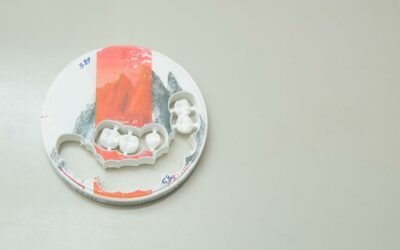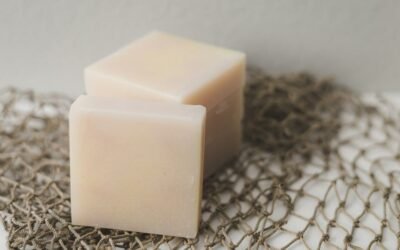Are you concerned about the presence of germs in your home? An air purifier for germs can help you breathe easier and reduce the risk of illness. By actively filtering the air, these devices work to eliminate harmful bacteria and viruses.
In this article, we will explore how air purifiers work, key features to look for, the benefits they provide, and the types of germs they can eliminate.
Stay informed and make a cautious choice for your health and well-being.
Key Takeaways
- Air purifiers equipped with HEPA filters effectively capture germs, bacteria, viruses, and allergens, improving indoor air quality.
- Activated carbon filters in air purifiers eliminate odors and chemical pollutants, enhancing the freshness of the air.
- UV-C light technology and ionizers in air purifiers can kill germs and neutralize airborne pathogens, reducing the concentration of germs in the air.
- Air purifiers are beneficial for individuals with respiratory conditions, allergies, or weakened immune systems, and can also help reduce the spread of germs in shared spaces.
How Does an Air Purifier Work
First, you should understand how an air purifier works to effectively eliminate germs. An air purifier is a device that helps improve indoor air quality by removing contaminants and pollutants from the air. It does this by utilizing various filtration technologies.
The most common type of air purifier uses a HEPA (High Efficiency Particulate Air) filter. This filter is designed to capture particles as small as 0.3 microns, including germs, bacteria, viruses, and allergens. As air passes through the filter, these particles get trapped, preventing them from circulating back into the room.
Some air purifiers also incorporate additional technologies like activated carbon filters, UV-C light, or ionizers to enhance their germ-fighting capabilities. The activated carbon filter helps remove odors and volatile organic compounds (VOCs), while UV-C light and ionizers can kill germs and neutralize airborne pathogens.
It's important to note that air purifiers aren't a substitute for good hygiene practices, such as regular handwashing and cleaning surfaces. However, they can be a valuable tool in reducing the concentration of germs in the air, especially in enclosed spaces.
Key Features to Look for in an Air Purifier
To choose the right air purifier for germs, consider these key features:
- High-efficiency particulate air (HEPA) filter: Look for an air purifier that's equipped with a HEPA filter. This type of filter is designed to capture particles as small as 0.3 microns, including germs, bacteria, and viruses. It's highly effective in reducing the spread of airborne diseases.
- Activated carbon filter: In addition to a HEPA filter, an air purifier with an activated carbon filter can help eliminate odors and chemical pollutants. This filter works by adsorbing volatile organic compounds (VOCs) and other harmful gases, ensuring that the air in your space isn't only germ-free but also fresh and clean.
- UV-C light technology: Some air purifiers feature UV-C light technology, which can help kill germs and bacteria. UV-C light has been proven effective in destroying the DNA of microorganisms, preventing them from reproducing and spreading. However, it's important to note that UV-C light shouldn't be used as the sole method of air purification.
When choosing an air purifier, it's crucial to consider these key features to ensure that you're selecting a device that will effectively eliminate germs and provide you with clean and healthy air. Remember to also consider the size of your space and the specific needs of your environment when making your decision.
Benefits of Using an Air Purifier for Germs
By using an air purifier equipped with a HEPA filter and activated carbon filter, you can effectively eliminate germs and enjoy cleaner, healthier air in your space. Air purifiers are designed to remove harmful particles from the air, including germs, bacteria, and viruses. These devices work by pulling in air and passing it through multiple filtration stages.
The HEPA filter is capable of capturing particles as small as 0.3 microns with a 99.97% efficiency, trapping germs and preventing them from circulating in your environment. The activated carbon filter, on the other hand, helps to eliminate odors and remove harmful chemicals from the air.
By eliminating germs and other pollutants, air purifiers can greatly improve the overall air quality in your space. This can be particularly beneficial for individuals with respiratory conditions, allergies, or weakened immune systems. Breathing cleaner air can reduce the risk of respiratory infections and improve overall health.
Additionally, air purifiers can help to reduce the spread of germs, especially in shared spaces such as offices or classrooms. It's important to note that while air purifiers can effectively remove germs from the air, they shouldn't be considered a substitute for good hygiene practices such as regular handwashing and cleaning surfaces.
Types of Germs an Air Purifier Can Eliminate
As you continue to explore the benefits of using an air purifier for germs, you'll discover the wide range of harmful microorganisms that these devices can effectively eliminate from the air in your space. Air purifiers are designed to filter out various types of germs, ensuring that the air you breathe is clean and safe.
Here are three sub-lists detailing the types of germs an air purifier can eliminate:
- Bacteria: Air purifiers can capture and eliminate bacteria such as E. coli, Salmonella, and Streptococcus. These bacteria can cause respiratory infections, stomach illnesses, and other health problems.
- Viruses: Air purifiers are effective in removing viruses like the flu virus, common cold viruses, and even the coronavirus. These viruses can spread through the air and cause respiratory illnesses.
- Mold spores: Air purifiers can eliminate mold spores, which are tiny particles released by mold that can trigger allergic reactions, respiratory issues, and other health complications.
It is important to note that while air purifiers can effectively eliminate many types of germs, they may not completely eliminate all germs in your space. Regular cleaning and good hygiene practices are still essential in maintaining a healthy environment.
Ensure that you choose an air purifier with a high-efficiency particulate air (HEPA) filter, as it's specifically designed to capture and remove small particles like germs from the air.
Tips for Choosing the Right Air Purifier for Your Needs
When choosing the right air purifier for your needs, consider factors such as room size, filtration technology, and maintenance requirements. These factors will help ensure that you select the most effective air purifier for your specific situation.
First, room size is an important consideration because air purifiers are designed to clean a certain volume of air. If the purifier is too small for the room, it may not be able to effectively remove all the pollutants. On the other hand, if the purifier is too large for the room, it may be inefficient and wasteful.
Second, filtration technology plays a crucial role in the performance of an air purifier. There are different types of filters available, such as HEPA filters, activated carbon filters, and UV filters. Each type of filter targets specific pollutants, so it's important to choose one that addresses your specific concerns, whether it's allergens, odors, or germs.
Lastly, consider the maintenance requirements of the air purifier. Some models require regular filter changes, while others may only require occasional cleaning. Make sure to factor in the cost and effort associated with maintenance, as it will impact the long-term usability and effectiveness of the purifier.
Conclusion
In conclusion, using an air purifier for germs can provide numerous benefits by eliminating harmful airborne particles.
With its advanced features and filtration system, an air purifier works effectively to improve the air quality in your home or office.
It's important to carefully consider the type of germs you want to eliminate and choose an air purifier that suits your specific needs.
By investing in a high-quality air purifier, you can create a healthier environment and reduce the risk of illness caused by germs.






0 Comments